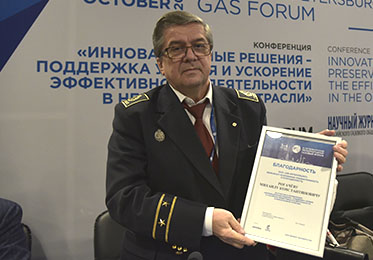
On October 1 during SPIGF 2019, the panel discussion Innovative solutions, PRESERVING AND IMPROVING THE efficiency IN THE oil and gas INDUSTRY took place.
Innovative guar gum based fluids, developed by Russian scientists, helped to increase oil recovery by 664.1 thous. tons. This was reported by Michael Silin, Head of Upstream Chemistry Department at the Gubkin Russian State University of Oil and Gas. The expert explained that hard-to-mine oil necessitates new approaches to mining and environmental protection. Previously, the most frequent option were hydrocarbon solutions.

"Such new fluids facilitated additional recovery of 664.1 thous. tons of oil. With the gelling agent Khimeko B (a polysaccharide based fluid that ensures instant oil pool slicing), we treat 250 wells annually, affecting oil pools directly. To omit foreign raw materials use in production of such fluids, we planted guars in the Crimea," said Michael Silin, also emphasizing that this will, in particular, require engagement of agricultural specialists.
Guar is a plant of the pea family: guar gum obtained from it is, in particular, applied in the oil and drilling industry for preliminary well treatment in case oil is recovered by hydraulic fracturing.
Michael Rogachev, Head of the Department for Development and Operation of Oil and Gas Fields at the St. Petersburg Mining University, emphasized the importance of Russian projects in the sphere of oil recovery enhancement. According to him, the next generation of hydraulic fracturing fluids capable of penetrating into micro- and nano-pores of oil pools will be surfactant-based water solutions.

"Surfactant-based water solutions will help to recover more oil from the pool, especially in case of clay pools. Surfactants can reduce ground stiffness and force oil away from the oil-field water," explained Michael Rogachev in his report "The set of physical and chemical technologies for oil recovery enhancement through use of Russian-made chemicals." Both experts explained that solutions for oil recovery enhancement produced abroad are rather expensive, which necessitates development of local know-hows.